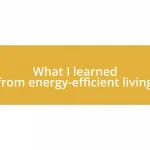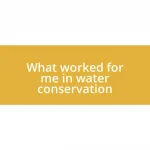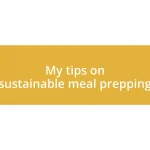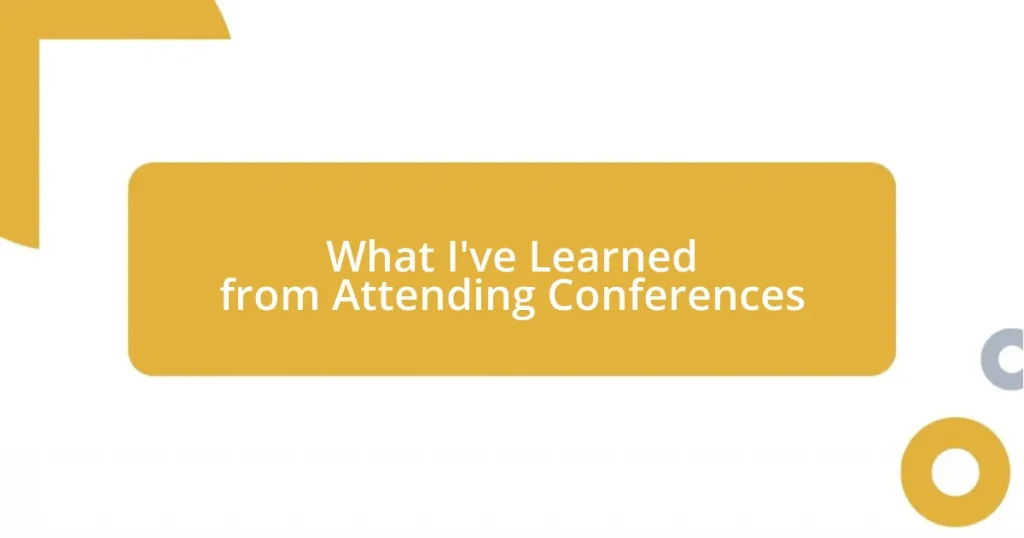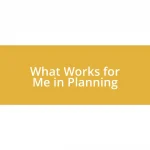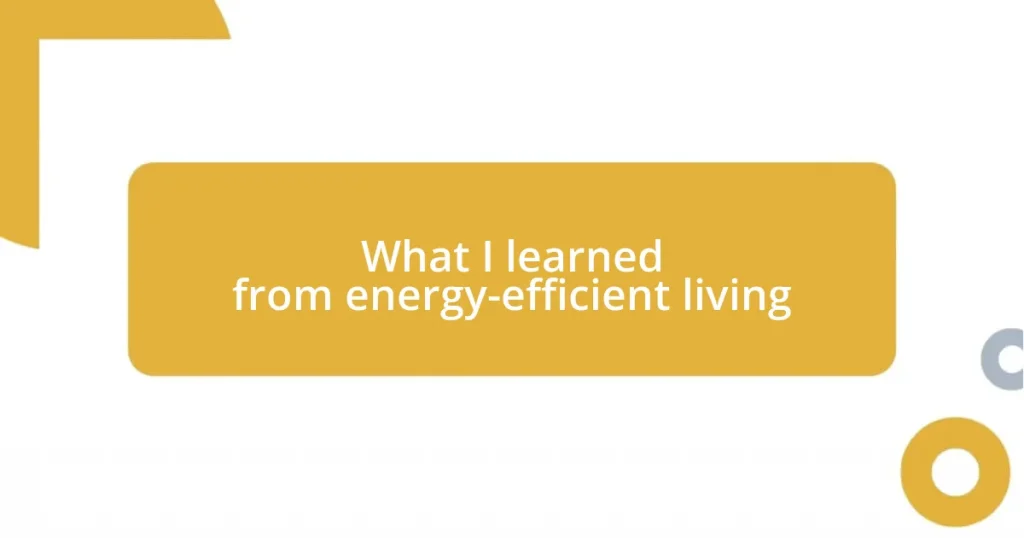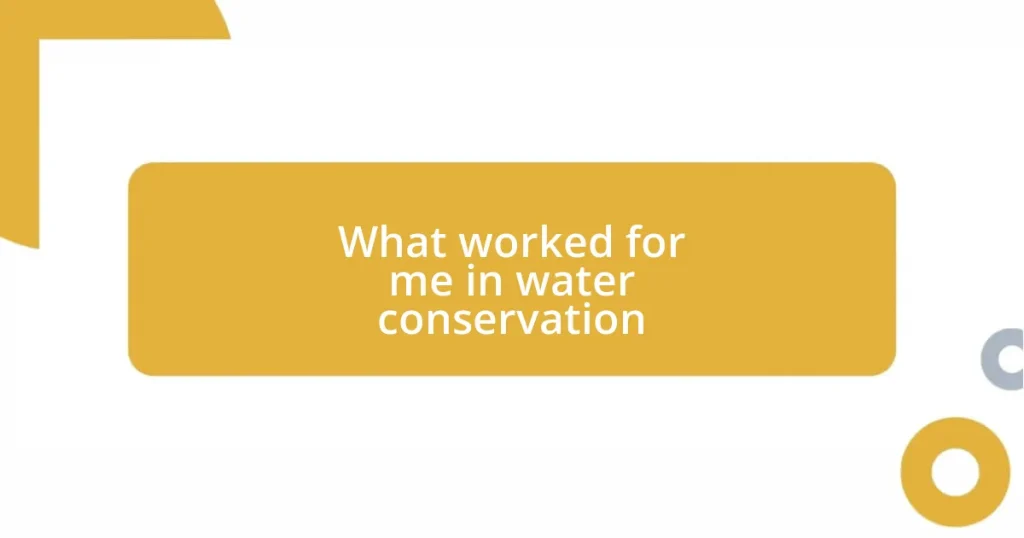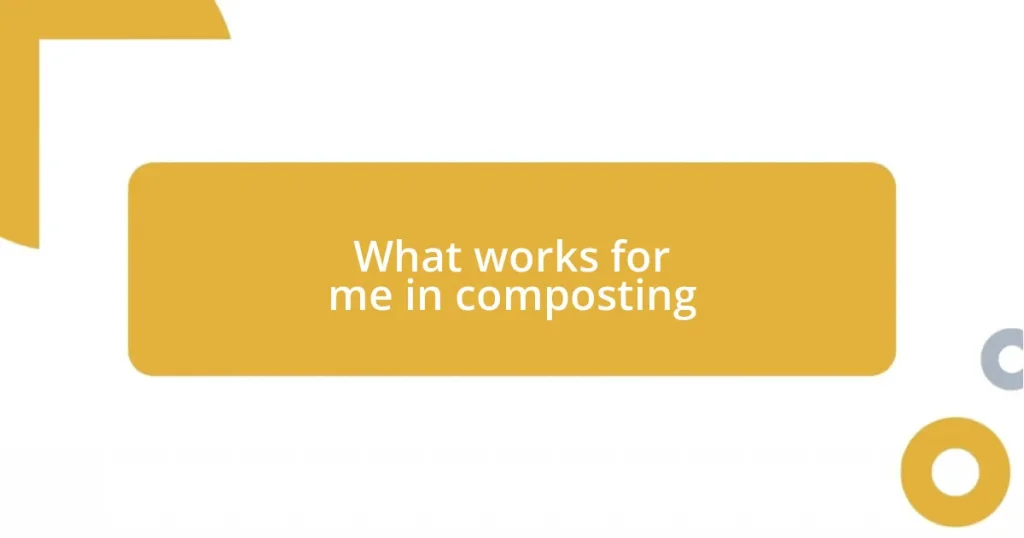Key takeaways:
- Attending conferences fosters personal and professional growth through networking, learning from industry leaders, and gaining diverse perspectives.
- Key skills developed include effective communication, networking, adaptability, public speaking, critical thinking, and team collaboration.
- Effective networking strategies include using names in conversation, asking open-ended questions, and following up after meetings to solidify relationships.
- Implementing insights from conferences requires setting specific goals, sharing learnings with colleagues, and regularly reviewing notes to maintain fresh ideas.

Importance of Attending Conferences
Attending conferences can be a game-changer for personal and professional growth. I still remember my first industry conference; I walked in feeling like a small fish in a big pond. Yet, the energy in the room was contagious, with people from all walks of life sharing ideas and insights. Isn’t it fascinating how just one conversation can ignite a new project or inspire a breakthrough?
Beyond networking, conferences offer a chance to learn from the best in the field. I recall sitting in a workshop led by a thought leader whose work I admired for years. Not only did I gain practical skills, but I also felt a renewed sense of purpose and motivation. How often do we get an opportunity to learn directly from the pioneers shaping our industry?
Another key aspect is the exposure to diverse perspectives. At one conference, I was struck by the range of approaches to problem-solving presented. It made me rethink my usual strategies and opened my eyes to new possibilities. How many times have we operated within our comfort zones, only to realize that innovation often lies just outside those boundaries?

Key Skills Gained from Conferences
One of the most significant skills I’ve gained from attending conferences is the art of effective communication. I remember a time during a Q&A session when I was unexpectedly called on to share my thoughts. My heart raced, but I took the opportunity and articulated my ideas clearly and confidently. This moment taught me that being able to express myself in front of a diverse audience is invaluable. It’s not just about speaking; it’s about engaging others, listening, and conveying your message in a way that resonates.
Here are some key skills I’ve honed through these experiences:
- Networking: Building authentic relationships that facilitate collaboration.
- Adaptability: Learning to thrive in fast-paced environments with shifting priorities.
- Public Speaking: Developing the confidence to present ideas and insights effectively.
- Critical Thinking: Analyzing varied perspectives and crafting thoughtful responses.
- Team Collaboration: Working with individuals from different backgrounds to achieve common goals.
These skills are not just abstract concepts; they are essential tools I carry into every aspect of my professional life.

Networking Strategies that Work
When it comes to effective networking, one strategy that has truly stood out to me is the significant power of naming. At a recent conference, I made a point to remember names and use them in conversation. I distinctly recall meeting a fellow attendee named Sarah, and by weaving her name into our discussions, I noticed how our connection deepened. It’s this simple act that not only shows engagement but also personalizes the interaction, making it memorable for both parties.
Another tactic I find particularly effective is asking open-ended questions. This strategy fosters more meaningful conversations. During a breakout session, while chatting with an expert in my field, I asked her what challenges she faced in her current project. The discussion that followed was rich with insights and allowed me to share my own experiences, leading us to brainstorm some potential collaborations. Isn’t it amazing how a single thoughtful question can lead to unexpected opportunities?
Lastly, I’ve learned the importance of follow-up after meetings. Sending a quick email saying it was nice to meet someone or sharing a resource can cement that initial interaction. After a conference last year, I reached out to several people I met, and one of them became a mentor, guiding me through career decisions. I realized that those connections are more than fleeting moments; they can evolve into lasting professional relationships.
| Networking Strategy | Description |
|---|---|
| Name Recognition | Using names during conversations to create a personal connection. |
| Open-Ended Questions | Encouraging deeper discussions that can lead to collaborative ideas. |
| Follow-Up Communication | Reaching out after the event to solidify relationships and open doors for future interactions. |

Maximizing Conference Attendance
When aiming to maximize my conference attendance, I’ve found that setting specific goals beforehand is incredibly beneficial. Whether it’s making a certain number of new contacts or attending particular sessions, having these targets in mind helps me stay focused. I remember a time I labeled my goal as simply “engage.” This intention pushed me to not only attend various panels but also actively participate in discussions, leading to richer experiences.
Timing can also be a game-changer. I’ve learned that arriving early to sessions often grants me the chance to introduce myself to speakers and attendees before the crowd builds up. At one conference, I struck up a conversation with a presenter on digital marketing strategies minutes before their talk. That brief exchange blossomed into a mentoring relationship that continues to this day. Isn’t it fascinating how those small windows of opportunity can lead to something larger?
Finally, I can’t stress enough the power of reflection after the event. I take some quiet time to jot down insights and actionable items from my notes. This not only solidifies what I’ve learned but also prepares me for forthcoming conversations with peers. After my last conference, I realized that my reflections turned into a blog post that resonated with others in my network. It’s almost like creating a ripple effect; what I uncovered and shared became a source of inspiration for others in our field. How do you ensure that the knowledge gained at these events doesn’t fade away? Always find a way to capture those moments.

Lessons from Conference Speakers
When it comes to the lessons I’ve gleaned from conference speakers, one thing that always strikes me is their passion. I recall listening to a speaker who shared his journey of overcoming obstacles in his career. His enthusiasm was palpable and reminded me of why I chose my path in the first place. It’s energizing to see someone so deeply engaged in their work, and it made me reflect on the importance of pursuing what truly excites me. Have you ever felt that surge of motivation from someone’s words?
Another key takeaway is the art of storytelling. A memorable speaker once shared a personal failure that led to her greatest success. Her vulnerability not only captivated the audience but also made her insights feel more relatable. I learned that weaving personal narratives into professional advice can transform dry information into compelling lessons. It’s a powerful reminder that our stories shape our experiences; how do you incorporate storytelling in your own presentations?
Lastly, I’ve observed that effective speakers often challenge their audience to think differently. During one session, the presenter posed a provocative question that made us question our assumptions about the industry. It pushed me to re-evaluate my own strategies and consider perspectives I hadn’t entertained before. Engaging with ideas that stretch my thinking has been invaluable. What about you? Are you open to being challenged in ways that provoke growth?

Implementing Insights from Conferences
Implementing insights from conferences requires a strategic approach. After absorbing valuable information, I make a habit of choosing two or three key takeaways to implement immediately. For instance, after a session on effective team dynamics, I began incorporating weekly check-ins with my team, which has vastly improved our communication. Isn’t it rewarding to see a direct impact from ideas shared in a conference?
I also find that discussing insights with colleagues enhances the implementation process. Not long ago, I shared a fascinating case study I learned about at a marketing conference with my coworkers. We brainstormed how we could adapt those strategies to our own projects, which not only solidified the concepts for me but also fostered a collaborative atmosphere. How often do you share what you learn with others to broaden the impact of your insights?
Lastly, I dedicate time to revisit my notes periodically. This ensures that the insights stay fresh in my mind and encourages me to apply them over time. I remember digging into my notes from a technology conference six months later and discovering an innovative approach to project management that I had initially overlooked. Implementing such insights isn’t just a one-time act; it’s an ongoing journey of growth. How do you keep your learning alive after the initial excitement fades?
